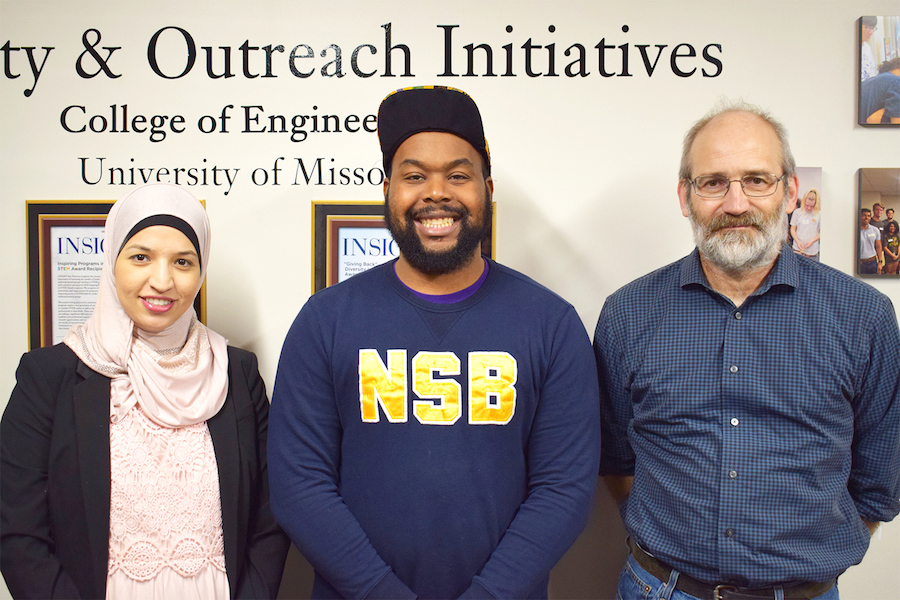Identifying and understanding contextual, cultural and developmental differences among identity expression for historically underrepresented students in science, technology, engineering and math (STEM) is key in supporting and growing these populations in STEM fields.
Mizzou Engineering, through Assistant Dean for Inclusive Excellence and Strategic Initiatives Tojan Rahhal, is part of a project seeking to do just that — Black and Brown in STEM at Mizzou. Rahhal, Terrell Morton of the College of Education and Johannes Schul of the Biology Department recently received a Division of Inclusion, Diversity & Equity (IDE) Excellence Grant for Employees to help fund this critical research.
“It’s a study that looks at the experience of being black and brown in STEM and how that impacts everything. … We’re going to be looking at what are the experiences of students in STEM at Mizzou and the College of Engineering. How does their identity inform their experience and how does it vary — how do students of different majors view their experience?” Rahhal explained.
The goal of the IDE Excellence Grant for Employees is to put one-time funding toward an initiative that will help “creatively strengthen teaching, pedagogical practices or research with inclusion, diversity and/or equity implications for our increasingly diverse community and student populations enrolled at MU.” Black and Brown in STEM seeks to understand the value of utilizing identity expression in STEM academia at Mizzou in order to help recruit and retain traditionally underrepresented students of African, Latinx and/or Indigenous ancestry.
The research team will use focus groups, individual interviews and journal prompts to gather data and identify contextual, cultural and developmental differences among identity expression from a group of approximately 80 students across biological sciences, physical sciences, engineering, technology/computer science and mathematics who identify racially as African, Latinx and/or Indigenous.
After acquiring and analyzing the data, the goal is to provide an inclusivity assessment on the departmental and college levels, create a model for understanding student identity expression and how it impacts enrollment and retention in STEM and create pilot measures and tools to help utilize the findings to increase enrollment and retention.
In short, the goal is to find out how identity expression affects students’ decisions to come to Mizzou, to major in a STEM discipline, and how to best support students in order to retain them and help them graduate with a STEM degree.
“Given the need to be innovative global leaders in engineering, it is important to value all perspectives,” Rahhal said. “And having a better grasp of the experiences of students who are traditionally underrepresented in STEM via a project like this can foster that innovation.”
Focus groups began in December, and the timeline states that final results will be compiled and analyzed for publication in the Fall, with the goal being to publish the findings in academic journals and present them at a variety of conferences in the summer.
